
The Social Cancer
by José RizalThis work has been selected by scholars as being culturally important, and is part of the knowledge base of civilization as we know it.
This work was reproduced from the original artifact, and remains as true to the original work as possible.
Therefore, y.
- First published
- Nov 05, 2015
- Publishers
- Arkose Press
About José Rizal
José Protasio Rizal Mercado y Alonso Realonda was a Filipino polymath, nationalist and the most prominent advocate for reforms in the Philippines during the Spanish colonial era. He is considered the Philippines' national hero and the anniversary of Rizal's death is commemorated as a Philippine holiday called Rizal Day. Rizal's 1896 military trial and execution made him a martyr of the Philippine Revolution.The seventh of eleven children born to a wealthy family in the town of Calamba, Laguna, Rizal attended the Ateneo Municipal de Manila, earning a Bachelor of Arts. He enrolled in Medicine and Philosophy and Letters at the University of Santo Tomas and then traveled alone to Madrid, Spain, where he continued his studies at the Universidad Central de Madrid, earning the degree of Licentiate in Medicine. He attended the University of Paris and earned a second doctorate at the University of Heidelberg. Rizal was a polyglot conversant in at least ten languages. He was a prolific poet, essayist, diarist, correspondent, and novelist whose most famous works were his two novels, Noli me Tangere and El filibusterismo. These are social commentaries on the Philippines that formed the nucleus of literature that inspired dissent among peaceful reformists and spurred the militancy of armed revolutionaries against the Spanish colonial authorities.As a political figure, Rizal was the founder of La Liga Filipina, a civic organization that subsequently gave birth to the Katipunan led by Andrés Bonifacio and Emilio Aguinaldo. He was a proponent of institutional reforms by peaceful means rather than by violent revolution. The general consensus among Rizal scholars, however, attributed his martyred death as the catalyst that precipitated the Philippine Revolution....
Books

Mourinho on Football
Jose Mourinho

Verdad Inconveniente
Jose Pereda

Paso Más Quequeño
Jose Gregorio Martos Vilachá

Clinical Examination of the Hand
J. Terrence Jose Jerome

100, 000 Horas de Ventas
José A. Maldonado Ávila

Precision Molecular Pathology of Glioblastoma
José Javier Otero

Searching for Missy
José Luis Torres

Hypnotism
Jose Frost

Kindred Spirits
José Díaz-Cuesta

Lordemano
Jose Zoilo Hernandez

Diálogos en el Museo y Otros Poemas
José E. Santos

Pirata de la Pata de Pato
José Carlos Andrés

Granada
José Zorrilla

Vida Es Relaciones
José Heredia Heredia

Becoming a Millionaire
Jose McMullen

Muerte en la Cumbre
José Roberto Baltazar Ceja

Smoker Beyond the Sea
Juan José Baldrich

Innovations and Social Media Analytics in a Digital Society
Maria José Sousa

Homeboy Scholars
Jose Cortez

Marketing and Smart Technologies
José Luís Reis

South American Italian- a Cookbook
Jose Duarte

Structural Integrity and Safety
José António Correia

Llegó Mi Mejor Amigo
José Luis Navajo
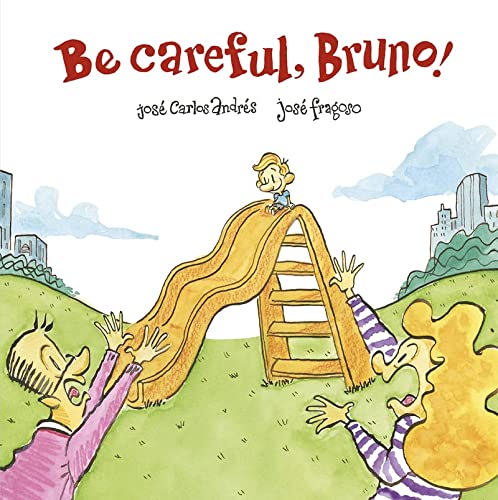
Be Careful, Bruno!
José Carlos Andrés

Basquetebol Com Ideias
José Curado

Muerte en la Cumbre
José Roberto Baltazar Ceja
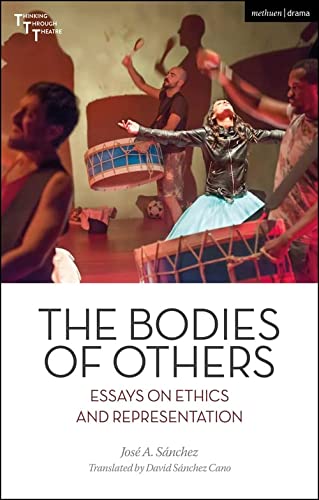
Bodies of Others
José A. Sánchez

Resurrection
José Alaniz

Más hojas sueltas
José Selgas Y Carrasco
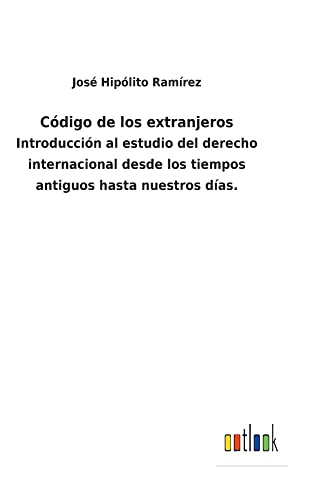
Código de los extranjeros
José Hipólito Ramírez

Los Secretos Del Hombre Más Rico Del Mundo
José Martínez

Let No One Sleep
Millás García, Juan José

Data Visualization for Social and Policy Research
Jose Manuel Magallanes Reyes

Racial Apocalypse
José Juan Villagrana

Poesías
D José María Ruiz de Somavia Y Ramos

States of Subsistence
José Ciro Martínez

ELISA
Jose Ma M

Lo Que Lucía Me Enseñó
José Ramos Serrano

Quantum Information and Quantum Optics with Superconducting Circuits
Juan José García Ripoll
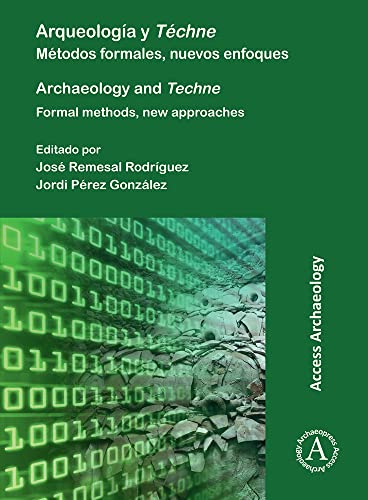
Arqueología y Téchne : Métodos Formales, Nuevos Enfoques : Archaeology and Techne
José Remesal Rodríguez

Lèon Degrelle in Exile (1945-1994)
José Luís Jerez Riesco

Lèon Degrelle in Exile (1945-1994)
José Luís Jerez Riesco

The Beauty in All
Jose Hess

Viaje Del Elefante / the Elephant's Journey
José Saramago

Tratado de GigantologÍa
Jose Trujillo

Introduction to Mathematical Relativity
José Natário

Biological Flow in Large Vessels
Jose-Maria Fullana

High-Speed Railway Bridges
José Romo

Places of Modernity in Early Mexican American Literature, 1848-1948
Aranda, José F., Jr.

The Reign of Greed
Jose Rizal

Overcoming a Disability
Jose Gonzalez

Smart Polymers
José Miguel García

Historia y Los Secretos de Manzanares el Real y la Pedriza
Juan José Saavedra
Similar books

EU Foreign Policy and Crisis Management Operations
Benjamin Pohl

Falls in older persons
Rein Tideiksaar

Second Calling
Hans Reinders
On the edge of a village near seville, southern spain, at the end of a dusty road running through fields of sunflowers and olive trees, is a house which is home to a community of people.

Die Nebennierenrinde Im Kindesalter
H. W. Altmann

Crafting Identity
Pavel Shlossberg

Applied Probability and Stochastic Processes
Frank Beichelt
Applied probability and stochastic processes, second edition presents a self-contained introduction to elementary probability theory and stochastic processes with a special emphasis on their applications in science, engineering, finance, .

Alfarería Romana Del Collet Est (Calonge, Girona)
Josep Burch
Collet est was a roman pottery workshop located on the catalonian coast near calonge.

Teaching English Language 16 - 19
Martin Illingworth
This uniquely structured and practical resource book will empower teachers new to the study of language to feel confident about leading a stimulating and successful course.

The Castle of Otranto
Horace Walpole
This tale of medieval dynastic and sexual politics is regarded as the first-ever published gothic novel and has inspired authors from stoker to poe to rowling.

NATO's Balkan Interventions
Dana H. Allin
Examines nato's balkan interventions over the entire decade starting with the break-up of yugoslavia in 1992.

Undefeated
Rhodri Davies
This is the untold story of the most successful british and irish lions tour in history.

Brezhnev and the Decline of the Soviet Union
Thomas Crump

Student Resistance
Mark Edelman Boren

Emerging Technologies
Gary E. Marchant
Emerging technologies present a challenging but fascinating set of ethical, legal and regulatory issues.

2014 Turning Silver into Gold
Hartmut Lehbrink
No other team dominated the 2014 formula one season like mercedes-benz.

Automation und Entscheidung
Karl Georg Holtgrewe

Memory and Brain Dynamics
Erol Basar

Homoeroticism in Imperial China
Mark Stevenson
Bringing together over sixty pre-modern chinese primary sources on same-sex desire in english translation, " homoeroticism in imperial china "is an important addition to the growing field of the comparative history of sexuality and provides a window onto .

Stress, Coping, and Relationships in Adolescence
Inge Seiffge-Krenke
Unique and comprehensive, this volume integrates the most updated theory and research relating to adolescent coping and its determinants.

Chemical Degradation Methods for Wastes and Pollutants
Matthew A. Tarr

Nutrition and Alcohol
Ronald Ross Watson

Crime and Personality (Psychology Revivals)
H.J. Eysenck

Joint Venture Strategies
Zenichi Shishido
Although they have the potential to create synergies, joint ventures by their nature contain inherent risk.

Space, Movement and Visibility in the Pompeian House
Michael A. Anderson
While pompeii and its houses have been subjected to important spatial syntax analyses, no study has sought either to develop implementations of these ideas that approach the pompeian domestic environment at a finer scale of analysis, or that integrate the.

Things Hidden
Richard Rohr
'only when the two come together, inner and outer authority, do we have true spiritual wisdom.
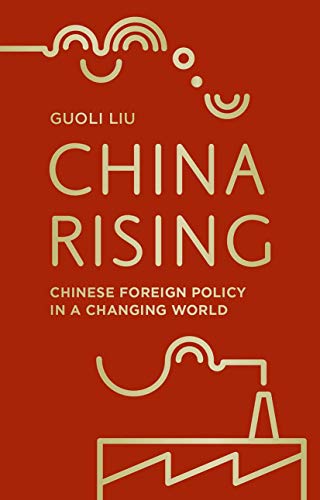
China Rising
Guoli Liu
This comprehensive text examines chinese foreign policy with a focus on the recent dramatic changes in china's place and role in the world.

Science for Exercise and Sport
David James
This handbook is written for undergraduate sport studies and sport and exercise students.

Prevention
Robert E. Hess
Providing practical information for all prevention professionals, this helpful volume presents an in-depth look at the excellent program models and prevention efforts used in the state of michigan.

Bassett's Environmental Health Procedures
Tim Deveaux
Environmental health law is a wide-ranging, detailed and complex body of law within the uk.

Revolution, Revolt and Reform in North Africa
Ricardo Laremont
Providing an account of the recent revolutions or reform movements that constituted part of the arab spring, this book focuses on these transformative processes in a north african context.

Ion Exchange and Solvent Extraction
Yitzhak Marcus

Pop Culture in Asia and Oceania
Kathleen M. Nadeau
This entertaining introduction to asian pop culture covers the global superstars, music idols, blockbuster films, and current trends--from the eclectic to the underground--of east asia and south asia, including china, japan, korea, india, the philippines,.

Assisted Circulation
Felix Unger

Sowjetische Partisanen in Weißrußland
Bogdan Musial
Vom ns-regime als vorwand fur massenverbrechen genutzt, in der sowjetunion mythisch uberhoht und in der jungsten debatte uber die wehrmacht hochst umstritten: bis heute ist die sowjetische partisanenbewegung als konkrete historische erscheinung schwer gre.

Mobility and Fantasy in Visual Culture
Johnson, Lewis, Jr.
This volume offers a varied and informed series of approaches to questions of mobility--actual, social, virtual, and imaginary--as related to visual culture.

Romanesque Dans les «Lettres» de Madame de Sévigné
Monika Kulesza
Cette etude de la correspondance de madame de sevigne est fondee sur plusieurs significations du terme romanesque .

Minderheiten Im Sozialistischen Jugoslawien
Katerina Králová
Dieses buch bietet einen umfassenden einblick in die politik des jugoslawischen staates gegenuber seinen 15 wichtigsten, offiziell anerkannten, ethnischen minderheiten.

Advances in Lipid Research
Rodolfo Paoletti

Epidemiology of Diet and Cancer
M. J. Hill

Chechen-English English-Chechen Dictionary and Phrasebook
Nicholas Awde
This guide is a simple means of sharing the chechen language and culture with speakers of english.

Age of Improvement, 1783-1867
Asa Briggs; Editor
The age of improvement has long established itself as a classic of modern historical writing.

Beating the Dragon
James McIntosh
Suitable for 2nd and 3rd year students taking courses on drug use/misuse principally in departments such as sociology, law, cultural and media studies, and psychology.

British Strategy and War Aims 1914-1916 (RLE First World War)
David French
This book illustrates the relationship between british military policy and the development of british war aims during the opening years of the first world war.

Hodder Cambridge Primary English
Rachel Axten-Higgs
Endorsed by cambridge international examinationsthe cambridge primary english course that is mindful of learners where english is not their first language.

Selected Works of Robert Owen
Gregory Claeys

Japan Year Book (6-Vol. ES Set)
Peter O'Connor
This is the second part of a series that has been established to reprint all the volumes of the japan year book, first published in the pre-war period.

Asperger's Guide to Entrepreneurship
Rosalind Bergemann
Entrepreneurship can be an ideal career option for enterprising individuals with asperger syndrome (autism spectrum disorder) and this detailed guide explains how to tell if being self-employed is right for you and how to go about starting and growing you.

Organic Semiconductors for Optoelectronics
Hiroyoshi Naito

Academic Face of Psychoanalysis
Louise Braddock
Ever since freud, psychoanalysts have explored the connections between psychoanalysis and literature and psychoanalysis and philosophy, while literary criticism, social science and philosophy have all reflected on and made use of ideas from psychoanalytic.

Seeing the Unseen. Geophysics and Landscape Archaeology
Stefano Campana







